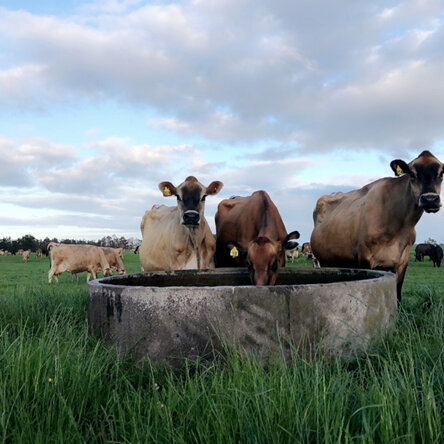Franklin Vets
Franklin Vets - excellence in veterinary care for dairy, farming, lifestyle, equine and household pets. BESTPRACTICE ACCREDITED NZ.
Your account is powered by Storbie. To edit your profile visit my.storbie.com
Your account is powered by Storbie. To edit your profile visit my.storbie.com

Wet weather and muddy conditions are contributing to a large number of herds dealing with environmental mastitis infections that are showing up in the first instance as high BMSCC at early pick-ups. Streptococcus uberis, the most common of the environmental pathogens in our pasture-based herds, seems to be largely at fault. While this bacterium responds well to treatment, subclinical cases that leave cows with high somatic cell counts on Day 4, delaying introduction to the milking herd, are frustrating. The most important tool to manage your way through this period is the rapid mastitis test (RMT). Make sure you know how to use this test properly. Our team can assist if you are having difficulty getting that BMSCC under control.
Pasture is quite different this season with the extended dry at the end of the autumn and mild weather conditions prevailing through the winter. Consequently, transition mixes that don’t account for the specific pasture conditions we are seeing, may not be as effective as usual in reducing milk fever. This is a complicated topic, but the key message here, if you have had ongoing issues this season, is to understand what has happened so you can plan for the next calving period appropriately. While for many of you, calving will be almost done, taking pasture samples from risk areas now will help you plan for the next calving.
Pasture sampling has also revealed that a lot of first-round pasture is higher in energy and sugars, and lower in NDF than is typical. A lot of farms are also short on forage supplements and are relying on concentrated feeds, low in fibre, to meet energy deficits. We are seeing some farms affected by early sub-acute ruminal acidosis (SARA). Key indicators that suggest this might be an issue for your herd are protein to fat ratio higher than 0.85, cows not eating/producing as much as you expect, collar rumination times less than 375mins per day. Getting onto this early will set the cows up well for the peak.
If you have concerns in any of these areas, please call your local clinic. We have the expertise to assist.
Dr David Hawkins BVSc
Franklin Vets - excellence in veterinary care for dairy, farming, lifestyle, equine and household pets. BESTPRACTICE ACCREDITED NZ.



